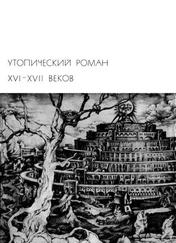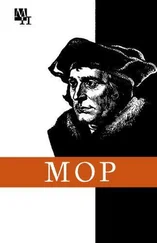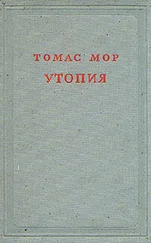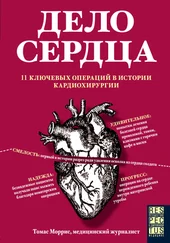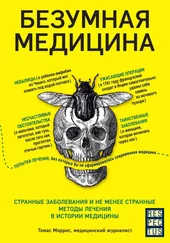"Their priests are men of eminent piety, and therefore they are but few, for there are only thirteen in every town, one for every temple; but when they go to war, seven of these go out with their forces, and seven others are chosen to supply their room in their absence; but these enter again upon their employments when they return; and those who served in their absence, attend upon the high priest, till vacancies fall by death; for there is one set over the rest. They are chosen by the people as the other magistrates are, by suffrages given in secret, for preventing of factions: and when they are chosen, they are consecrated by the college of priests. The care of all sacred things, the worship of God, and an inspection into the manners of the people, are committed to them. It is a reproach to a man to be sent for by any of them, or for them to speak to him in secret, for that always gives some suspicion: all that is incumbent on them is only to exhort and admonish the people; for the power of correcting and punishing ill men belongs wholly to the Prince, and to the other magistrates: the severest thing that the priest does is the excluding those that are desperately wicked from joining in their worship: there is not any sort of punishment more dreaded by them than this, for as it loads them with infamy, so it fills them with secret horrors, such is their reverence to their religion; nor will their bodies be long exempted from their share of trouble; for if they do not very quickly satisfy the priests of the truth of their repentance, they are seized on by the Senate, and punished for their impiety. The education of youth belongs to the priests, yet they do not take so much care of instructing them in letters, as in forming their minds and manners aright; they use all possible methods to infuse, very early, into the tender and flexible minds of children, such opinions as are both good in themselves and will be useful to their country, for when deep impressions of these things are made at that age, they follow men through the whole course of their lives, and conduce much to preserve the peace of the government, which suffers by nothing more than by vices that rise out of ill opinions. The wives of their priests are the most extraordinary women of the whole country; sometimes the women themselves are made priests, though that falls out but seldom, nor are any but ancient widows chosen into that order.
"None of the magistrates have greater honour paid them than is paid the priests; and if they should happen to commit any crime, they would not be questioned for it; their punishment is left to God, and to their own consciences; for they do not think it lawful to lay hands on any man, how wicked soever he is, that has been in a peculiar manner dedicated to God; nor do they find any great inconvenience in this, both because they have so few priests, and because these are chosen with much caution, so that it must be a very unusual thing to find one who, merely out of regard to his virtue, and for his being esteemed a singularly good man, was raised up to so great a dignity, degenerate into corruption and vice; and if such a thing should fall out, for man is a changeable creature, yet, there being few priests, and these having no authority but what rises out of the respect that is paid them, nothing of great consequence to the public can proceed from the indemnity that the priests enjoy.
"They have, indeed, very few of them, lest greater numbers sharing in the same honour might make the dignity of that order, which they esteem so highly, to sink in its reputation; they also think it difficult to find out many of such an exalted pitch of goodness as to be equal to that dignity, which demands the exercise of more than ordinary virtues. Nor are the priests in greater veneration among them than they are among their neighbouring nations, as you may imagine by that which I think gives occasion for it.
"When the Utopians engage in battle, the priests who accompany them to the war, apparelled in their sacred vestments, kneel down during the action (in a place not far from the field), and, lifting up their hands to heaven, pray, first for peace, and then for victory to their own side, and particularly that it may be gained without the effusion of much blood on either side; and when the victory turns to their side, they run in among their own men to restrain their fury; and if any of their enemies see them or call to them, they are preserved by that means; and such as can come so near them as to touch their garments have not only their lives, but their fortunes secured to them; it is upon this account that all the nations round about consider them so much, and treat them with such reverence, that they have been often no less able to preserve their own people from the fury of their enemies than to save their enemies from their rage; for it has sometimes fallen out, that when their armies have been in disorder and forced to fly, so that their enemies were running upon the slaughter and spoil, the priests by interposing have separated them from one another, and stopped the effusion of more blood; so that, by their mediation, a peace has been concluded on very reasonable terms; nor is there any nation about them so fierce, cruel, or barbarous, as not to look upon their persons as sacred and inviolable.
"The first and the last day of the month, and of the year, is a festival; they measure their months by the course of the moon, and their years by the course of the sun: the first days are called in their language the Cynemernes, and the last the Trapemernes, which answers in our language, to the festival that begins or ends the season.
"They have magnificent temples, that are not only nobly built, but extremely spacious, which is the more necessary as they have so few of them; they are a little dark within, which proceeds not from any error in the architecture, but is done with design; for their priests think that too much light dissipates the thoughts, and that a more moderate degree of it both recollects the mind and raises devotion. Though there are many different forms of religion among them, yet all these, how various soever, agree in the main point, which is the worshipping the Divine Essence; and, therefore, there is nothing to be seen or heard in their temples in which the several persuasions among them may not agree; for every sect performs those rites that are peculiar to it in their private houses, nor is there anything in the public worship that contradicts the particular ways of those different sects. There are no images for God in their temples, so that every one may represent Him to his thoughts according to the way of his religion; nor do they call this one God by any other name but that of Mithras, which is the common name by which they all express the Divine Essence, whatsoever otherwise they think it to be; nor are there any prayers among them but such as every one of them may use without prejudice to his own opinion.
"They meet in their temples on the evening of the festival that concludes a season, and not having yet broke their fast, they thank God for their good success during that year or month which is then at an end; and the next day, being that which begins the new season, they meet early in their temples, to pray for the happy progress of all their affairs during that period upon which they then enter. In the festival which concludes the period, before they go to the temple, both wives and children fall on their knees before their husbands or parents and confess everything in which they have either erred or failed in their duty, and beg pardon for it. Thus all little discontents in families are removed, that they may offer up their devotions with a pure and serene mind; for they hold it a great impiety to enter upon them with disturbed thoughts, or with a consciousness of their bearing hatred or anger in their hearts to any person whatsoever; and think that they should become liable to severe punishments if they presumed to offer sacrifices without cleansing their hearts, and reconciling all their differences. In the temples the two sexes are separated, the men go to the right hand, and the women to the left; and the males and females all place themselves before the head and master or mistress of the family to which they belong, so that those who have the government of them at home may see their deportment in public. And they intermingle them so, that the younger and the older may be set by one another; for if the younger sort were all set together, they would, perhaps, trifle away that time too much in which they ought to beget in themselves that religious dread of the Supreme Being which is the greatest and almost the only incitement to virtue.
Читать дальше
Конец ознакомительного отрывка
Купить книгу


